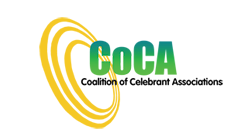CoCA considers that the Attorney General’s Department has not given due consideration to its responsibility to ensure all Australian marriages are valid.
It is clear that Commonwealth Marriage Celebrants are not the only group of marriage celebrants whose performance could be improved. Recognised Religious Celebrants could benefit from more training and/or supervision in marriage law.
A Marriage Licence, obtained from a universally accessible source such as Australia Post, would raise income from all marrying couples equally. The Funds so collected could then be distributed proportionally between the Commonwealth and the state/ territories.
Such an approach would be not only be less discriminatory, but would also be much easierfor cost efficiency for the Department in eliminating the need for extra staffing, on costs and associated costs in having to collect an Annual Fee from Commonwealth celebrants.
RECOMMENDATION 6:
That the Department give further consideration to the implementation of a Marriage Licence Fee to be collected from all couples and the monies so collected be distributed proportionally between the Commonwealth and the state/ territories for marriage program improvements for all marrying couples.
There should be clear guidelines on what circumstances will warrant exemption should the current proposed Cost Recovery plan be implemented
RE 3.5 Exemptions Remote, Very Remote and Migratory Areas
As CoCA outlined at the AGD-CoCA meeting of the 20th August 2012, CoCA does not support any exemptions of the fee unless the celebrant can make a case for exceptional circumstances, and the Department should make these decisions on a case-by-case basis upon the receipt of an Application for Exemption.
Given the current over-supply of marriage celebrants there is a good case for most celebrants to apply on the basis of hardship whether they live in the city or country areas. Given the competition in some city areas for example, it could be argued that some rural celebrants have a better chance of doing wedding work and thus being able to afford the annual fee. Therefore a simple “postcode test” is not a valid indicator of hardship.
RE 3.5 Special Circumstances
Likewise CoCA outlined at the AGD-CoCA meeting of the 20th August 2012, CoCA supports some exemptions of the fee based upon the celebrant making a case for special circumstances, and the Department should make these decisions on a case-by-case basis upon the receipt of an Application for Exemption.
However CoCA does not agree that such exemptions should result in automatic suspension. Most celebrants feel a duty of care for the couples that have booked their services, and depending on the type of special circumstances, wherever possible will try to meet their obligations to those couples.
Automatic suspension could negatively impact upon those couples being required to engage a new celebrant where the specific circumstances may permit the celebrant to meet their obligations with those couples.
Also as Notice of Intended Marriage can be given up to eighteen months, and weddings can be booked in advance even longer than that. A suspended celebrant may be further disadvantaged by being prevented from booking weddings after their special circumstances are past because the couple’s would be most reluctant to book a ‘suspended’ celebrant.
RECOMMENDATION 7:
That Exemptions for the payment of the Annual Fee be decided on a case-by-case basis upon receipt of an Application for Exemption, and that where celebrants are granted an exemption on the basis of Special Circumstances, the celebrant’s registration should not be automatically suspended, but also decided on a case by case basis.


